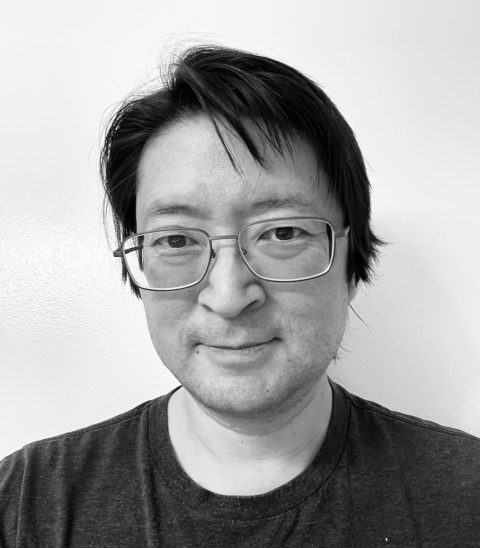“Hold Pressure” is particularly affecting for me as I work at a university with a high percentage of achievement-centered pre-med students. Academic and professional burnout in high-stress occupations is a regular conversation—is the experience rendered in the story reflective of struggles you know personally, or is it rendered from research?
The story was rendered from my experiences in the medical field, and from the experiences of others I knew. For instance, I spent some time on the transplant surgery service. There were two sides to every transplant: the miracle of the lives saved, but on the other side, there was the death that made the transplant possible, usually a young healthy person who died in a sudden and unbearably tragic way. The main character in “Hold Pressure” was overwhelmed by all the tragic aspects of it. Ping’s burnout arc is not what I personally experienced, but I used the details of things I’d seen or heard to tell Ping’s story. The issue of professional burnout seems even more relevant now during the pandemic, with burnout in many different professions escalating due to the stresses of COVID.
On a lighter note, one piece of research that I enjoyed was watching Taylor Swift’s music videos, in order to be able to write about her dance moves. She’s definitely one of my favorite singer-songwriters!
Speaking of research, I’ve lately been interested in the intersection between imagination, fact, and reimagination. I love how the beating heart, cholesterol particles, and abdominal cavity operation drive narrative momentum. How much research went into rendering these descriptions, and how much of your work tends to be imagined, how much fact? Or is parsing this intersection moot?
For me, the balance between research, fact, and reimagination is different for every story, and I think of it like being in a recording studio where you control each element of the song’s sound through a control panel with different dials, and you can choose which dial you want to turn up to 11 (to quote Nigel from This Is Spinal Tap). For “Hold Pressure,” the medical descriptions were all reimaginings of things I or other people experienced. For instance, I actually did witness a jet of blood shoot across the operating room, and the sound of it hitting the wall is still so vivid to me to this day. Although in real life it wasn’t part of any mishap and didn’t happen anything close to the way it was portrayed in the story.
When I’m writing stories that are based on fact or reimagination of my own experience, it’s like therapy, like I’ve processed my pain through writing and come to terms with it. However, when writing stories primarily from research in something I know nothing about, it can be really fun and interesting to learn about something totally different than my experience. One thing I can’t do is write purely facts. If I’m writing about facts, I need to twist the facts, tell lies, restructure things completely to make sense of them.
In one of Christopher Allen’s SmokeLong Workshop modules, Christopher asks, “Why write about something that doesn’t haunt you?” The medical stuff in the story, the beating heart, the abdominal cavity operation, came from thinking about the things that haunt me.
Describe your writerly and/or artistic obsessions.
I’m obsessed with writing about my extended family. Both my parents’ families emigrated from China during the mid-twentieth century, an incredibly tragic and tumultuous time in China’s history. So I was raised by Chinese immigrants with all that history, but as an American-born Chinese, now I’m just trying to humbly raise my own family, aware of everything the generation before me sacrificed. It’s a bountiful well for story inspiration. I’m heartened that there are so many amazing writers from the Asian diaspora telling their stories now. You can open up almost any current literary magazine, and our stories are in there. It’s a cause for great celebration! When I was younger, very few writers were telling these stories.
“Hold Pressure,” as you’ve said, is definitely about burnout in a high-stress profession. But it’s also a family story, depicting what it’s like for this young man whose father has high hopes for him becoming a doctor, as he experiences the daily trauma of the hospital wards, which his father has no idea about.
How do you know when you’ve finished a story? What does it feel like?
I never really feel like a story is finished. I write almost all of my stories in workshops, which is great because you get so much feedback from the teachers and from other fellow writers. There’s so much pleasure in writing a new story, then even more pleasure during moments in revision where things start to click and the story improves, but then at some point, I start getting tired of looking at a story, and that’s how I know for better or worse I won’t be doing much more revision.
What writing projects are you working on now?
I’m writing primarily flash fiction now. I love reading flash collections published by authors I admire, so my dream would be to eventually try to publish my own flash fiction collection. I’ve got a long way to go.



 The SmokeLong Grand Micro Contest (The Mikey) is now an annual competition celebrating and compensating the best micro fiction and nonfiction online.
The SmokeLong Grand Micro Contest (The Mikey) is now an annual competition celebrating and compensating the best micro fiction and nonfiction online.